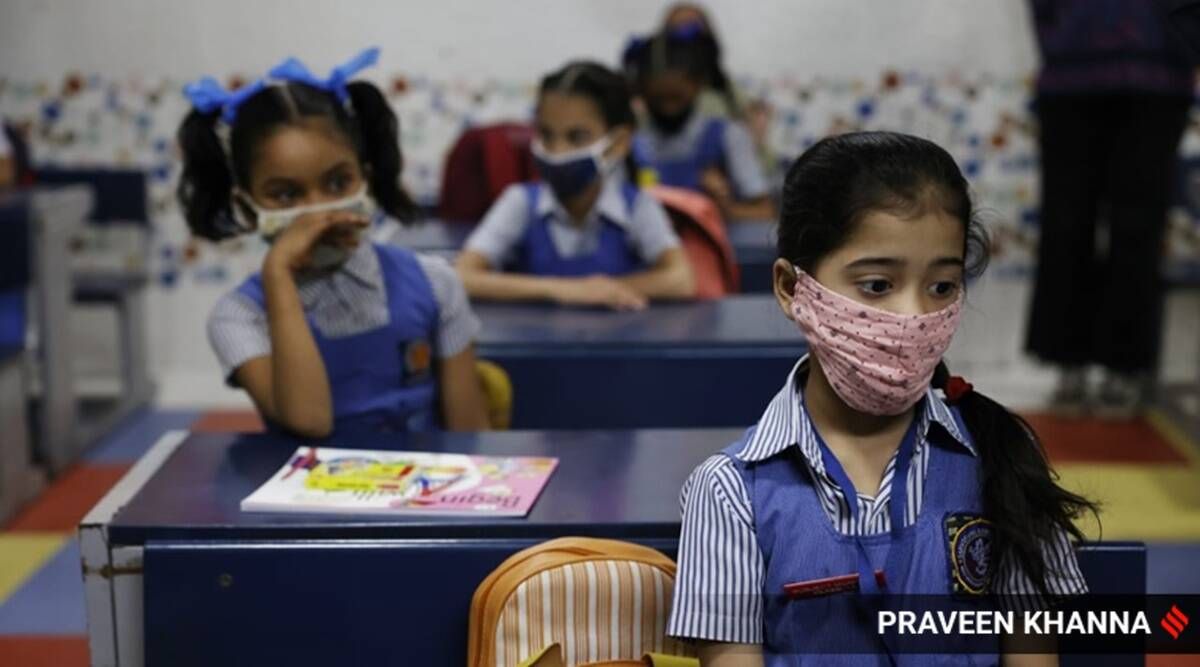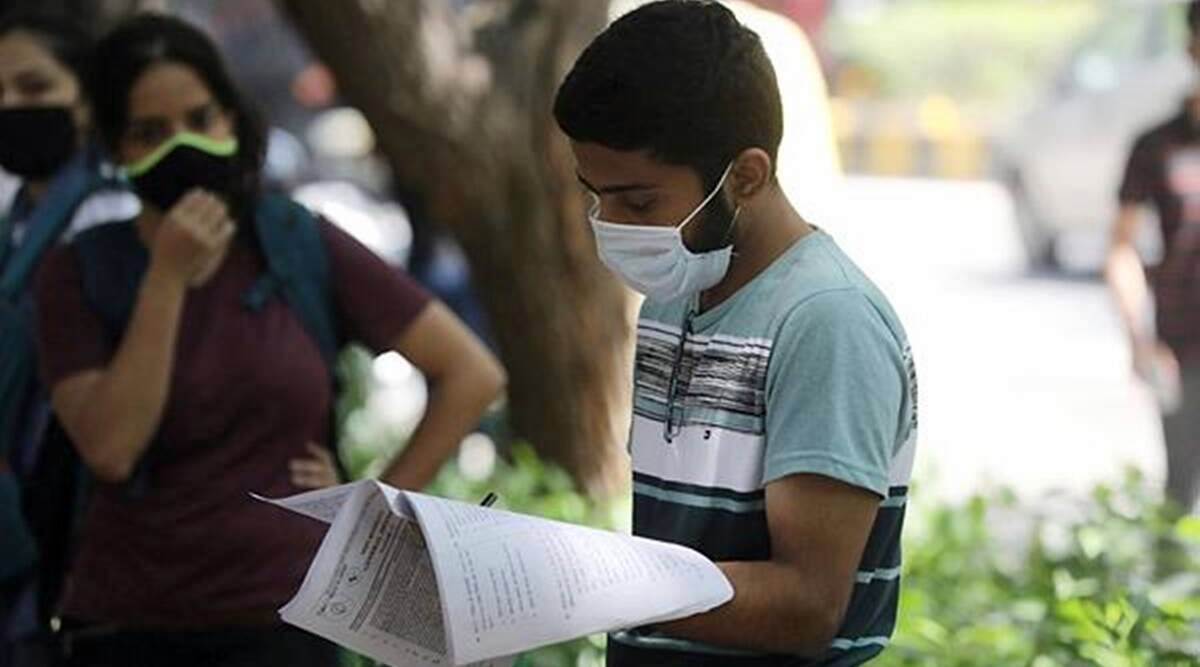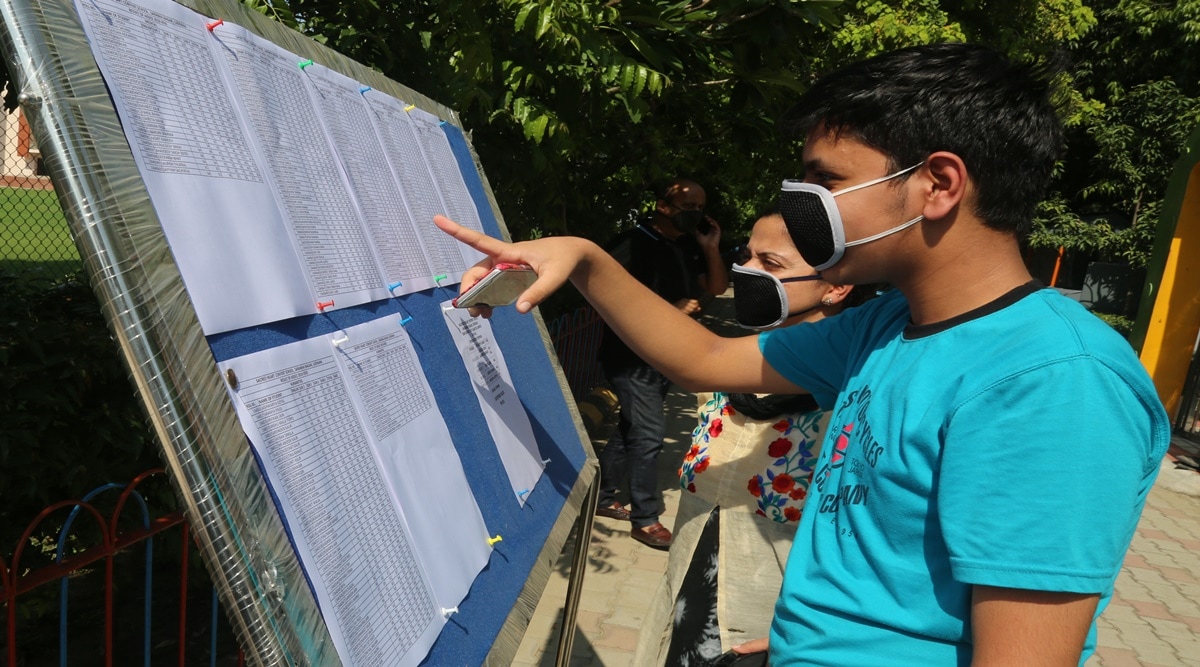A national mental health survey conducted by the government this year revealed that students at middle- and high-school levels in India are battling anxiety owing to academics, examinations and several other factors. Some counsellors, however, believe that parental pressure and peer pressure also cause anxiety in students.
According to the survey conducted by the NCERT, “frequent mood swings” have been identified as a major area of concern across grades, gender and types of schools. Eighty-one per cent of the respondents reported academics as the cause of their anxiety (and girls were more stressed than boys). However, personal independence, social interactions, peer relationships, career concerns and subject specialisations also play a huge part in increasing anxiety.
According to a WHO survey, 10 per cent of children and adolescents experience mental disorders but the majority of them do not seek help. The problems that children go through during this age extend to adulthood and limit their opportunities for leading fulfilling lives. “Globally, it is estimated that 1 in 7 (14%) 10-19-year-olds experience mental health conditions(1), yet these remain largely unrecognized and untreated,” the report stated.
Covid effect or…
Mental health has lately been a hot topic of discussion, especially during the pandemic. While school students are now openly sharing their problems, counsellors believe that children have been suffering from anxiety for a long time now.
Some counsellors that the indianexpress.com interviewed said awareness about the topic had increased because of the Covid pandemic, giving students strength to open up about their mental health issues.
A major issue since the pandemic, however, is that children have been deprived of self-confidence.
Akanksha Kukreja, a consultant child and adolescent psychologist, said, “Pre-Covid children were worried about how school was and about managing time and studies. However, in the post-pandemic days, when students are back in the classroom along with their friends, they are seeking validation from social media and friends.”
Also, students are now meeting their classmates daily and are being asked to adjust with people of different temperament and personalities, which can also cause anxiety in them.
Parental pressure
The findings of the survey are based on the responses of nearly 3.8 lakh students across the country. Of the 81 per cent that faulted academics, 49 per cent identified studies as the major trigger and 28 per cent reported examinations and results as the triggers for anxiety.
Counsellors believe that a lot of this pressure about academics, exams and results comes from parents, who sometimes put the burden of achieving their own dreams on their children.
“Most of the time, parents start comparing their children with other kids in their close circles, or even with their siblings. This leads to unwanted pressure and may also engender an unnecessary competitive nature in the child,” said Sidhhant Singh of the edtech TopRankers.
Jyoti Kanda, a child psychologist, explained that children mirror their parents, especially in the school years. These are considered to be developing years and if the parents compare their children with their peers or siblings, “it will add to pressure and will even make the child feel that he or she has to score exceptionally high”.
Comparisons by parents, which may be a form of criticism or motivation, can have life-long consequences, with children developing anxiety if they are not always on top of everything as they grow up.
Keeping up with Insta trends
“I go to a good school, and the problem is that how much I try to catch up with others on what they watch, wear and listen to and the kind of Instagram profiles they maintain, it gets too hectic and sometimes I end up getting angry at myself. This one time I was so embarrassed because I didn’t have a night-time skincare routine, but apparently it is a ‘cool’ thing to do. I put in the effort of researching about one and now I just lie that I have it. It makes me jittery when I think of talking to my classmates,” said *Krisha (*name changed on request), a Class 9 student in Noida.
In the NCERT survey, some children from private schools reported a lack of confidence about their appearances. However, Kendriya Vidyalaya students were confident about their physical appearance, a fact attributed to their lower exposure to the internet.
Like Krisha, a lot of students these days have access to smartphones and social media, which means they participate in peer activities round the clock. Children who scroll through their peers’ social media accounts and see posts about their happy or “happening” lives often forget that people show only the good side of their lives on the internet.
The world of today’s youth is heavily restricted to social media, and that it also affects their thought process is a worry. “Children need to remember that social media is giving them pressure, not peace,” Akanksha said.
How to battle mental health issues
In the NCERT survey, students said that confiding in friends and family, and practising yoga and meditation are effective coping strategies.
Jyoti Kanda advises students to keep a check on their daily routine. “Diet is very important to stay mentally healthy. In this age, we do end up consuming a lot of gluten and junk food, which can negatively affect a child’s health — physical and mental. Proper sleep is also very important for mental well-being,” Kanda said.
Sidhhant Singh believes that students need to reach out to their well-wishers, rather than staying silent. “Children should freely talk to their parents, teachers, counsellors or even older siblings. It is important that they have a frank relationship with these people, and they seek advice and help from them whenever needed. If they only reach out to their friends of the same age, that may not be very helpful, as older people will have more understanding power, patience and experience to help students. Talk, rather than seeking answers on Google,” he said. “Children should also be encouraged to read autobiographies and motivational books. Reading experiences of some people can actually help children realise that they are not alone in this fight and that many have walked the same road.”
Akanksha said that “internal validation” was something that needs to be developed in students. “It is important that children realise that they need to compete with themselves and not others. Another helpful way to fight this battle can be engaging in a hobby that the children enjoy and are good at, as this will also help them feel good about themselves,” she added.
!function(f,b,e,v,n,t,s)
{if(f.fbq)return;n=f.fbq=function(){n.callMethod?
n.callMethod.apply(n,arguments):n.queue.push(arguments)};
if(!f._fbq)f._fbq=n;n.push=n;n.loaded=!0;n.version=’2.0′;
n.queue=[];t=b.createElement(e);t.async=!0;
t.src=v;s=b.getElementsByTagName(e)[0];
s.parentNode.insertBefore(t,s)}(window, document,’script’,
‘https://connect.facebook.net/en_US/fbevents.js’);
fbq(‘init’, ‘444470064056909’);
fbq(‘track’, ‘PageView’);







